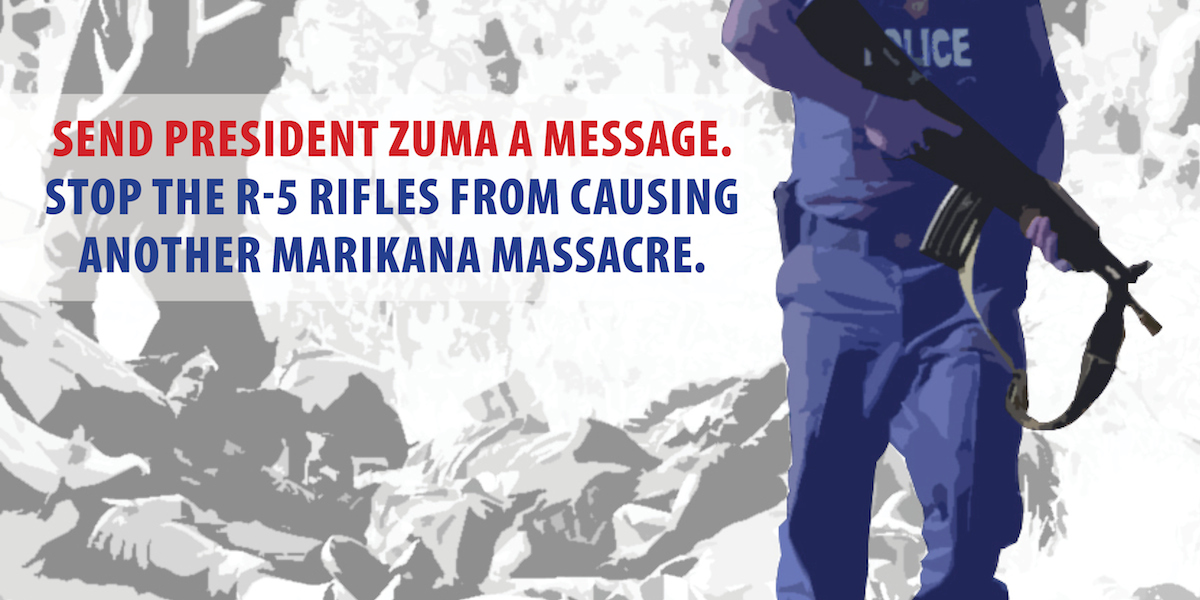
A campaign has been launched by Gun Free South Africa and Amandla.mobi calling on the Minister of Police, Nkosinathi Nhleko and the National Police Commissioner Riah Phiyega to disarm the police’s crowd-control units of their deadly R5 deadly rifles.

The R5 assault rifle is based on the Israeli Galil, which was inspired by the AK-47. It was introduced into service with the South African police in the late 1980s, at the height of police oppression during apartheid. It is unacceptable that a public institution tasked with “creating a safe and secure environment for all the people of South Africa. Mr Cees de Rover from the Farlam Commission, which investigates the killing of 47 striking miners in 2012, noted that the use of R5’s was “extremely dangerous and violated international policing best practice” because a bullet fired from an R5 rifle will travel for up to 600m after it is fired — increasing the risk of injuring bystanders. Also, because bullets from these rifles disintegrate, it is extremely difficult to holding individual officers accountable when the rifles are used to shoot at a crowd.
How prevalent is police brutality in public-order policing?
Most cases of police brutality involve public-order policing. Parliament’s research unit notes that: Former police minister Nathi Mthethwa reported that there were more than 13 000 protests in 2013 in which police were involved and 1 882 of them were violent protests. In 2014, City Press reported that “SAPS this year, on average, allegedly shot and killed one protester every four days in South Africa”.
The right to protest
The right to protest, linked to the right to freedom of expression, is considered a vital right in any democracy. South Africa, through its Constitution, has affirmed the importance of this right, which in Chapter 2, section 17 provides that: “Everyone has the right, peacefully and unarmed to assemble, demonstrate, to picket and to present petitions.”
Yet protests are increasingly seen as threats to public order, rather than the exercising of a democratic right, with dissent and protest being criminalised.
But even when protestors disregard the responsibilities inherent in the right to protest, suppressing violent protests with lethal military weapons both violates global policing norms and directly contradicts South Africa’s blueprint for development, the National Development Plan, which calls for a professional and demilitarised police service.
It is within this context that Gun Free South Africa and Amandla.mobi are asking to ban the use of R5s for crowd control. According to the two organizations, the R5s not only threaten the lives of both protestors and bystanders, but also perpetuate a long history of lethal violence by South Africa’s police officers against citizens, a deplorable relic of apartheid 21 years into democracy.
How to support the campaign?
Visit the Amandla website by clicking, here.
Related - Policy Document: Marikana Commission of Inquiry: Report on matters of public, national and international concern arising out of the tragic incidents at the Lonmin Mine in Marikana, in the North West Province.


Comments
Keep comments free of racism, sexism, homophobia and abusive language. People's Assembly reserves the right to delete and edit comments
(For newest comments first please choose 'Newest' from the 'Sort by' dropdown below.)